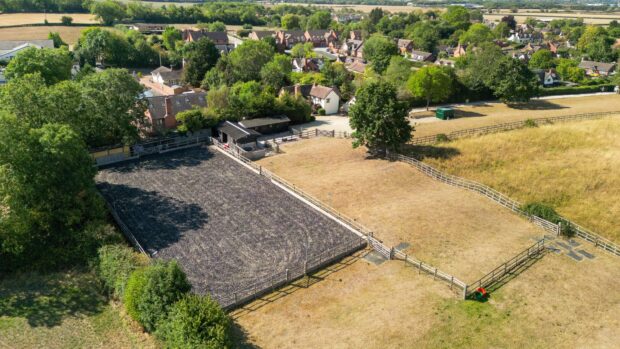Auctions distil the emotional rollercoaster of buying a property into one highly charged day. The joy of spotting the perfect home, the thrill of bidding, the delight of securing your lot — or the bitter taste of defeat if another wave of the paddle nudges the price beyond what you can afford.
“Once, the underbidder was so upset when she lost the property that she burst into tears and ran sobbing from the auction room,” recalls Jeremy Zeid of Clarke Gammon Wellers.
But the headiest feeling comes perhaps when you realise that, as the hammer falls, you become the owner of your dream home — and 28 days later, you can move into it.
“The fall of the gavel is a binding contract. It cuts out all the toing and froing, the arrival of another buyer or vendors changing their minds,” says Mark Lewis, auctioneer for Symonds & Sampson.
The drawback, of course, is that successful bidders can’t change their minds. Properties are sold unconditionally at auction, which is why you must research your prospective purchase thoroughly and make up your mind before entering the saleroom.
Auction catalogues are published long in advance and can be requested from the auctioneer. You’ll find that West Country auction houses usually have more equestrian homes than those in the south-east.
Once you have narrowed down your selection, arrange the viewings. You may be able to set an individual appointment, but don’t be surprised if the auctioneer tells you that the property is open for group viewings at specific times — this is standard practice. If you like a property, it is useful, and sometimes mandatory, to register your interest.
Auctioneers have a legal pack for each house, which includes papers such as title deeds, leases and conditions of sale, as well as the searches. It is worth having your solicitor examine it thoroughly because, when the gavel falls, you buy the property subject to the pack’s legal documentation — whether you read it or not.
For similar reasons, Simon Cooper of Stags recommends having a survey carried out. “Buyers need to do their homework because at the end of the auction the property may be theirs,” he says. “You sign the contract there and then.”
Another crucial step to take as early as possible is to sort out your finances. Bear in mind that successful bidders have to write a cheque covering 10% of the price immediately after the auction — and must pay the rest 28 days later.
“We have some instances of people who have enough cash for the deposit and arrange their finances post-auction. But if there are problems, the buyers could find themselves in a difficult position because they are under contractual obligation to complete in 28 days,” explains Zeid.
This means you should put in a mortgage application well in advance of the auction date. By then, you should also have come up with your maximum bidding price. Keep it clearly in mind because it is easy to overshoot it in the heat of the auction.
Lewis recommends attending at least one auction prior to the one where your lot will be sold to see how bidding works. On the day itself, he suggests people should turn up early, ask the auctioneer whether there are any amendments to the legal pack and make sure he knows where they will be sitting.
“Bid clearly,” urges Lewis. “Don’t let the auctioneer dictate the pace of the bidding. If he is getting in too big a jump in bids, slow him down.”
And when the hammer falls and the property is yours, make sure you sign the contract before going home to celebrate.
|
||
 |
||


 Get up to 19 issues FREE
Get up to 19 issues FREE TO SUBSCRIBE
TO SUBSCRIBE 


